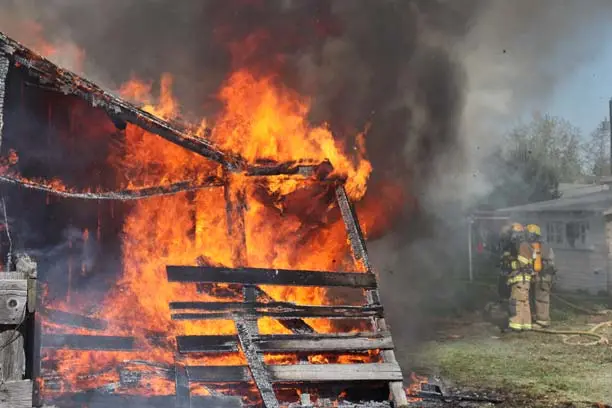How to Protect Your Farm from Barn Fires


Barn fires are a farm owner’s worst nightmare. According to the Animal Welfare Institute, 539 deadly barn fires occurred from 2018 to 2021, resulting in the deaths of nearly 3 million farm animals. The National Fire Protection Association found that barn fires caused an average of $48 million in property damage annually from 2014 to 2018. Luckily, most barn fires can be prevented with a few common-sense strategies.
Regular safety inspections, removing potential ignition sources and reducing the amount of flammable material both in and around barn structures are important to decrease the risk of a potential fire. You can also contact your local fire department and request a fire risk assessment to help identify and remove potential farm fire hazards you may have overlooked. Here are some of the most common causes of barn fires and how to prevent them.
Statistics show that the number one thing you can do to prevent a barn fire is to ban smoking. Don’t assume that boarders, workers and guests will understand this common fire safety practice. Post “No Smoking” signs prominently at all exterior entrances. In areas where smoking is permitted, provide ashtrays and butt cans as a reminder to extinguish all cigarettes.
Improperly baled hay and straw can spontaneously ignite a fast-spreading hay bale fire. Whenever possible, hay, straw and other types of bedding should not be stored in the same building in which livestock is housed. Once hay is stored, it is important to keep the space clean, avoid excessive moisture and monitor the temperature to determine if the hay is at risk for spontaneous combustion.
Electrical systems in barns, especially in older structures, are often the cause of a barn fire. All barn wiring should be housed in a conduit and be UF-B rated. Check lines frequently to ensure that they haven’t been chewed by mice or otherwise damaged. Any appliances used in the barn (e.g., clippers, dryers, vacuums) should be UL-approved and grounded. Appliances with frayed cords or bent plugs should not be used until properly repaired, and all appliances should be disconnected when not in use.
Many common farm tools can also become ignition sources if used improperly. Pay close attention to the following items, especially when in or around your barn:
Having an emergency action plan in place can save lives and help minimize the impact of the disaster, while risk management can help keep you and those who run your operation safe. Talk to your local Farm Bureau agent to learn how our Farm and Ranch insurance can help protect your property and equipment.